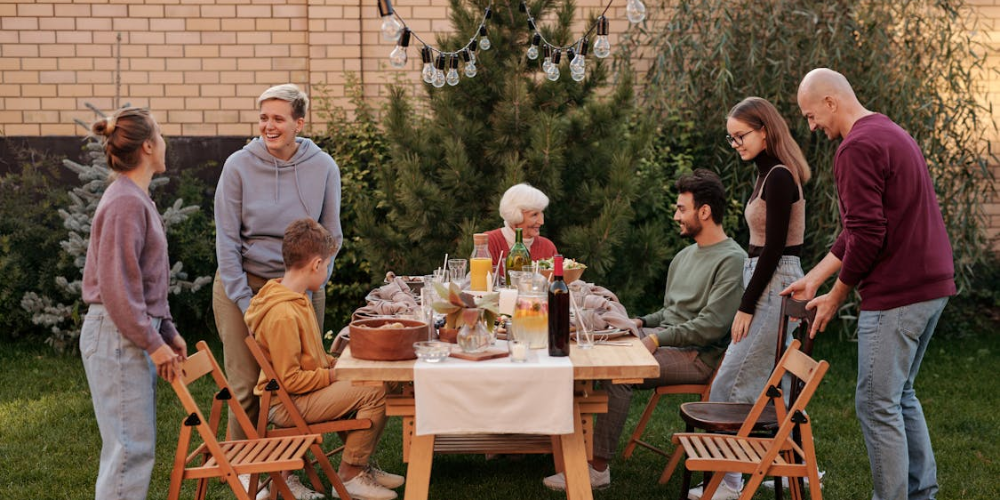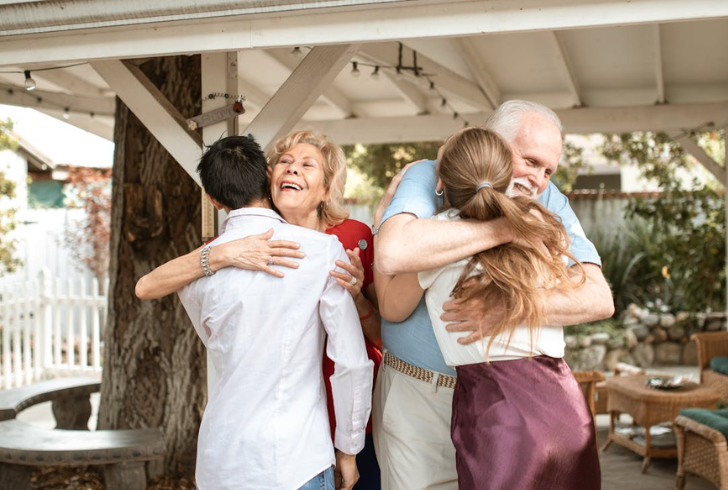
Why Dad’s Side of the Family Tends to Miss Out and How to Fix It

Have you ever noticed that family gatherings on your mom’s side seem more frequent and vibrant compared to those with your dad’s relatives? You’re not alone. Many people find themselves feeling closer to their maternal relatives, and there are several intriguing reasons behind this phenomenon.
This article delves into the fascinating world of family dynamics, exploring the reasons why dad’s side of the family tends to miss out. We’ll uncover the surprising role of biology, cultural influences, and even geography in shaping these connections.
The Mommy and Me Phenomenon

Pexels | Andrea Piacquadio | Mothers have been the primary caregivers, forging a strong emotional connection with their children.
One explanation points to the traditional roles within a family unit. Historically, mothers have been the primary caregivers, forging a strong emotional connection with their children. This close bond often translates into a more natural extension of those connections to the maternal grandparents and aunts/uncles.
Think about it – who did you spend more time with as a child? Chances are, it was mom (or another primary caregiver), and that naturally translates to spending more time with her family as well.
Geography Plays a Role, But Not Always How You Think

Pexels | RDNE Stock project | Historically, when people got married, they usually moved closer to the wife’s family.
Another factor that can influence family closeness is geographical proximity. Traditionally, after marriage, couples often settled closer to the wife’s family. This could be due to various reasons, such as existing family ties or job opportunities.
However, recent studies suggest a shift in this trend. While physical distance can certainly be a barrier, it doesn’t always hold true. Strong bonds can still be built and nurtured regardless of miles, thanks to modern technology and a conscious effort from both sides of the family.
Unpacking the Evolutionary Angle
Some researchers delve into the realm of evolutionary psychology to explain this dynamic. The theory suggests that since there’s no 100% certainty of paternity, grandparents on the mother’s side might be more biologically inclined to invest in their grandchildren, ensuring the continuation of their genetic lineage. This may seem like a complex concept, but in simpler terms, it suggests a subconscious bias towards relatives with a guaranteed biological connection.
Building Strong Bonds with Dad’s Side

Pexels | Askar Abayev | Organize family gatherings to create shared experiences and memories.
Feeling a disconnect with your paternal relatives doesn’t have to be the end of the story. The good news is that family bonds can be strengthened with a little effort. Here are some tips:
- Take the initiative: Reach out to your dad’s side of the family, even if it’s just a simple phone call or video chat.
- Plan reunions: Organize family gatherings to create shared experiences and memories.
- Embrace technology: Utilize video calls and social media to stay connected and share updates.
- Uncover your roots: Explore your family history together and learn about your shared heritage.
Strong family connections enrich our lives in countless ways. They offer a sense of belonging, provide unwavering support during challenging times, and create a tapestry of shared memories that become cherished heirlooms.
By understanding why dad’s side of the family tends to miss out and making a conscious effort to bridge the gap, you’re not just nurturing these connections for yourself, but also laying the groundwork for a more vibrant and supportive network for future generations to come.
More in Family Counseling
-
`
5 Reasons Why Dad’s Side of the Family Misses Out
Family bonds are intricate and multifaceted, often creating a unique tapestry of connections. However, many people notice a peculiar trend: stronger...
July 12, 2024 -
`
A Quick Guide on How to Get Short-Term Disability Approved for Anxiety and Depression
Living with anxiety or depression poses unique challenges, particularly in the workplace, where stress can exacerbate symptoms. For many, short-term disability...
July 5, 2024 -
`
Why Do People Feel Sleepy After Eating?
Is feeling sleepy after eating a sign of diabetes? Well, not directly. There are many reasons why you feel drowsy after...
June 20, 2024 -
`
What Is High-Functioning Depression? Symptoms and Treatment
High-functioning depression may not be a term you hear every day, but it’s a very real and challenging experience for many....
June 13, 2024 -
`
Kelly Clarkson’s Weight Loss Ozempic Journey – Debunking the Rumors
In a refreshing moment of transparency, Kelly Clarkson, the beloved singer and talk show host, sheds light on her remarkable weight...
June 3, 2024 -
`
What Is the Best Milk for Gut Health and Why?
In recent years, the milk section at the grocery store has expanded far beyond the traditional options. While cow’s milk has...
May 30, 2024 -
`
Do Dental Implants Hurt? Here’s All You Need to Know
When you hear “dental implants,” you might wince at the thought of pain. But do dental implants hurt as much as...
May 24, 2024 -
`
5 Key Differences Between A Psych Ward & A Mental Hospital
Curious about the differences between a psych ward and a mental hospital? You are not alone. With the mental health conversation...
May 16, 2024 -
`
It’s Official! “Selling Sunset’s” Christine Quinn & Husband Christian Dumontet Are Parting Ways
Have you ever found yourself unexpectedly engrossed in the personal lives of celebrities, especially when their stories take dramatic turns? Well,...
May 9, 2024










You must be logged in to post a comment Login